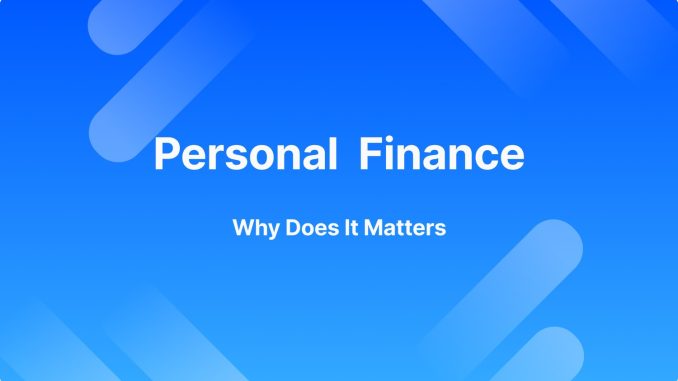
Practicing financial gratitude is a subtle but powerful way to reshape your relationship with money. In a culture that often equates success with accumulation and constantly pushes for more, it’s easy to overlook what you already have. Financial gratitude doesn’t mean ignoring ambition or settling for less—it means acknowledging the value of your current resources and recognizing the role they play in your life. It’s about shifting focus from scarcity to sufficiency, from comparison to contentment, and from anxiety to appreciation. This mindset not only improves emotional well-being but also supports smarter financial decisions and long-term stability.
At its core, financial gratitude begins with awareness. It’s the act of noticing the financial tools, opportunities, and privileges you already possess. That could be a steady income, a manageable debt load, a supportive network, or simply the ability to make choices. These elements, while easy to take for granted, form the foundation of financial resilience. When you pause to appreciate them, you begin to see money not just as a means to an end but as a resource that enables freedom, security, and growth. This shift in perspective can reduce stress and foster a healthier, more intentional approach to spending and saving.
Gratitude also helps counteract the constant pressure to upgrade. Lifestyle inflation, social comparison, and the pursuit of status can lead to a cycle where satisfaction is always just out of reach. Practicing financial gratitude interrupts that cycle by encouraging reflection. Instead of asking what’s missing, you ask what’s working. For example, rather than feeling frustrated about not affording a luxury vacation, you might appreciate the weekend getaway you can enjoy without financial strain. This doesn’t mean abandoning goals—it means grounding them in appreciation rather than dissatisfaction. When gratitude informs ambition, it becomes more sustainable and less reactive.
In business, financial gratitude can influence culture and strategy. Leaders who recognize and value the resources at their disposal—whether it’s a loyal customer base, a talented team, or a stable cash flow—are better positioned to make thoughtful decisions. They’re less likely to chase growth for its own sake and more likely to invest in what truly matters. This mindset fosters resilience, especially during periods of uncertainty. When a company appreciates its strengths, it can build on them with confidence rather than scrambling to fix perceived weaknesses. Financial gratitude, in this context, becomes a strategic asset.
Practicing financial gratitude also enhances relationships. Money is often a source of tension in families, partnerships, and teams. But when individuals express appreciation for shared resources, contributions, and financial support, it creates a sense of unity. Saying thank you for a partner’s budgeting efforts or acknowledging a colleague’s cost-saving initiative can strengthen trust and collaboration. These small gestures build a culture of respect and recognition, which is essential for any group navigating financial decisions together. Gratitude turns money from a point of friction into a point of connection.
One of the most effective ways to cultivate financial gratitude is through reflection. Taking time to review your financial journey—where you started, what you’ve learned, and how you’ve grown—can reveal progress that might otherwise go unnoticed. Maybe you’ve paid off a credit card, built an emergency fund, or simply become more mindful about spending. These milestones, however modest, deserve recognition. Reflecting on them reinforces a sense of agency and accomplishment. It reminds you that financial growth isn’t just about big wins—it’s about consistent effort and intentional choices.
Financial gratitude also encourages generosity. When you appreciate what you have, you’re more inclined to share it. This doesn’t mean giving beyond your means—it means recognizing that abundance isn’t just about quantity, but about mindset. Whether it’s donating to a cause, helping a friend, or investing in community initiatives, gratitude opens the door to meaningful giving. And in turn, generosity reinforces gratitude, creating a positive feedback loop. In business, this might look like reinvesting profits into employee development or supporting local organizations. These actions not only reflect values but also build goodwill and long-term loyalty.
Importantly, financial gratitude doesn’t require perfection. You don’t have to be debt-free, wealthy, or financially independent to practice it. In fact, gratitude is often most transformative when practiced during challenging times. Acknowledging the resources you do have—even when they’re limited—can provide comfort and clarity. It shifts the focus from what’s wrong to what’s possible. This mindset doesn’t ignore hardship; it reframes it. It allows you to navigate financial stress with resilience and hope, rather than fear and frustration.
Technology can support financial gratitude, but it must be used intentionally. Apps that track spending or visualize savings can highlight progress and reinforce positive habits. However, the real power lies in how you interpret the data. Instead of focusing solely on what you haven’t achieved, look at what you’ve maintained or improved. Celebrate consistency, even if the numbers aren’t dramatic. Gratitude is not about comparison—it’s about recognition. It’s about seeing value in the journey, not just the destination.
Ultimately, practicing financial gratitude is about cultivating a mindset that honors your financial reality while striving for growth. It’s about making peace with where you are, appreciating what you’ve built, and moving forward with intention. This approach doesn’t eliminate ambition—it enriches it. It creates a foundation of emotional and financial stability that supports smarter choices, stronger relationships, and a more fulfilling life. In a world that often equates money with status or success, financial gratitude offers a quieter, deeper kind of wealth—the kind that’s felt, not flaunted.